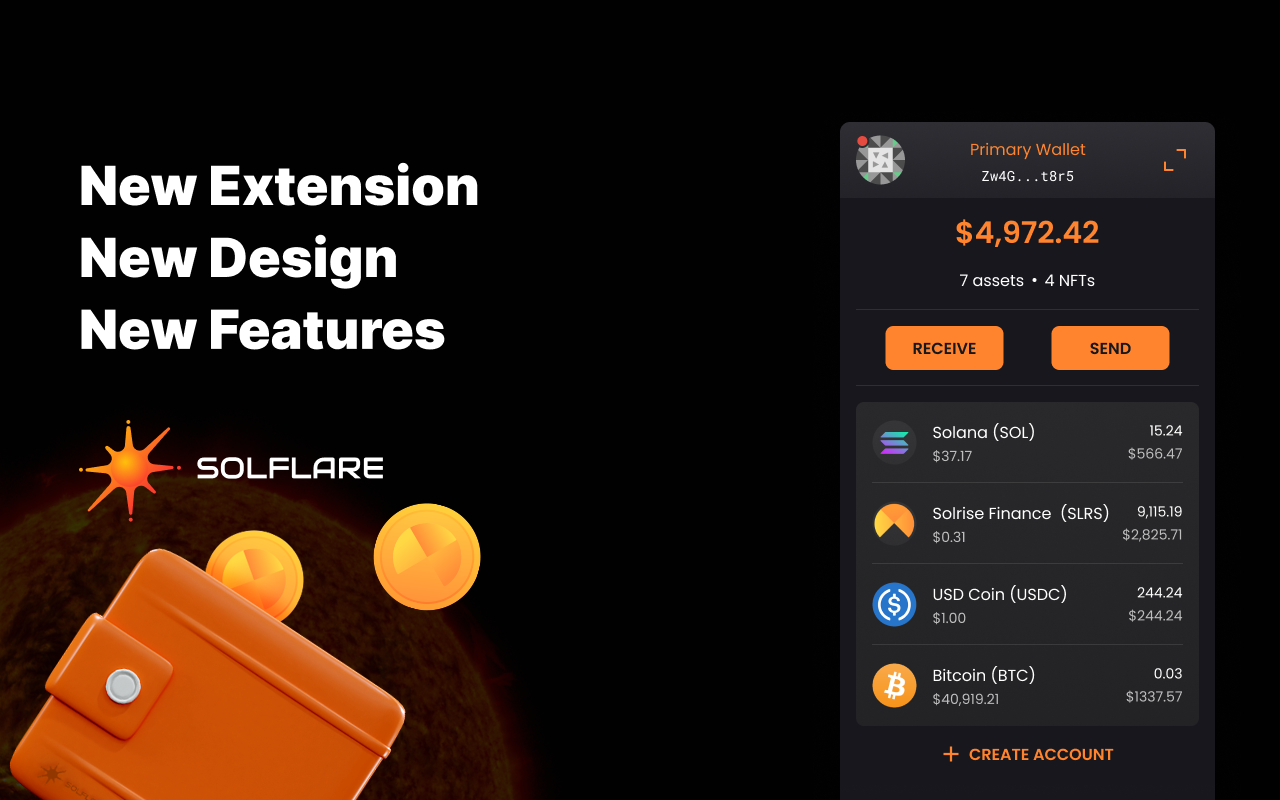So, I was messing around with my Solana stash the other day, trying to get into staking and DeFi, and man, the wallet and validator choices threw me for a loop. Seriously, I thought it’d be straightforward—just pick a wallet, stake some SOL, and chill. Nope. Something felt off about the options out there, especially when balancing security with ease of use.
Here’s the thing. When you’re deep into Solana’s ecosystem, it’s not just about holding your crypto; it’s about how your wallet interacts with the network and which validators you trust to keep things running smoothly. You ever get that uneasy feeling that your funds might not be as safe as you think? Yeah, me too. But then, I stumbled upon a wallet that kinda nailed it.
Initially, I thought any wallet supporting Solana would do the trick. But as I dug deeper, I realized not all wallets are built equal—especially when it comes to extensions that let you connect seamlessly to DeFi apps and select validators for staking rewards. Actually, wait—let me rephrase that. It’s more about how these wallets integrate with the broader Solana network and what control you have over validator choice.
And oh, by the way, if you’re like me and want a smooth experience without compromising security, the solflare wallet extension stands out. It’s got that balance of user-friendliness and robust features that many other wallets lack.
Wow! The more I learned, the more I saw how critical the validator selection is. It’s not just a checkbox; it directly impacts your staking rewards and network health. Picking the wrong validator can mean lower returns or, worse, your stake getting slashed if the validator misbehaves. Scary stuff.
Validator Selection: More Than Just Picking a Name
Okay, so check this out—validators do the heavy lifting behind the scenes by verifying transactions and securing the network. When you delegate your SOL tokens to a validator, you’re basically vouching for them to do their job honestly. Simple, right? Well, not quite.
On one hand, you want a validator with a strong uptime record and decent commission fees. But actually, there’s more nuance—some validators are super reliable but charge high commissions, eating into your rewards, while others might be cheap but occasionally drop the ball. My instinct said I needed to find a sweet spot.
Initially, I just skimmed through validator lists, but then realized I had to get my hands dirty and check performance stats, community reputation, and even validator infrastructure because hey, if their servers are sketchy, it could affect my stake. Hmm, yeah—this was getting pretty technical.
Here’s what bugs me about some wallets: they don’t give you enough control or transparency over which validators you can pick. That’s a dealbreaker for anyone serious about staking. The solflare wallet extension, however, lets you choose from a vetted list, and you can even see commission rates and performance metrics right there. Pretty slick.
Really? That felt like a breath of fresh air after fumbling with other wallets that just auto-selected validators without much input.
Why the Wallet Interface Matters—More Than You Think
Look, I’m biased, but a wallet’s interface can make or break your crypto experience. If the UI is clunky or confusing, you’re more likely to make mistakes—like sending funds to the wrong address or missing out on staking opportunities.
And not just that, the wallet needs to play nice with Solana’s fast-paced ecosystem. Some wallets lag behind when it comes to integrating with new dApps or supporting recent protocol updates. That bugs me because the Solana scene moves fast, and you want your wallet updated accordingly.
At first, I thought all wallets would support easy staking and validator selection, but turns out many mobile apps fall short. They’re great for quick transfers but don’t offer the depth needed for active DeFi users.
Speaking of mobile, the solflare wallet extension shines by bridging desktop convenience with mobile flexibility. I mean, having a browser extension that syncs effortlessly with mobile apps gives you that cross-device freedom without compromising security.
Something else I noticed: wallets that let you manage stakes directly without redirecting to confusing third-party sites save a ton of headaches. It’s all about cutting down friction.
Security First, But With a Dash of Convenience
Whoa! Security’s a big deal here. You can’t just trust any random wallet or validator without thinking twice. My gut says you gotta vet both carefully.
For example, hardware wallets offer unbeatable security, but they’re not the most user-friendly for daily staking or DeFi interactions. On the other hand, software wallets like the solflare wallet extension strike a balance by securing private keys locally and providing smooth access to staking options.
Here’s where things get tricky—some wallets store keys in a way that’s susceptible to phishing or malware attacks. That’s a no-go. Honestly, I’m not 100% sure about every wallet’s backend security, but solflare’s reputation and open-source components gave me more confidence.
And, something very very important: always keep your seed phrase offline and never share it. No exceptions.
That said, convenience often tempts people to sacrifice security, which is a trap I almost fell into. But once I got serious, I realized protecting my stake was worth the extra effort.
Why I Keep Coming Back to the solflare wallet extension
Okay, so check this out—the solflare wallet extension isn’t just another tool; it’s become my go-to for managing Solana assets. It offers a clean interface, solid security features, and, crucially, the ability to handpick validators with transparency.
I’ve used it for months now. Initially, I was skeptical about browser extensions because of past experiences with sketchy add-ons, but solflare changed my mind. It feels like the developers actually get what the community needs.
Plus, the integration with staking and DeFi protocols is smooth, so I don’t have to bounce around apps or sites. That’s a huge time saver.
Here’s a personal anecdote—once, I accidentally tried delegating to a validator with high commission fees, and the solflare wallet extension warned me before finalizing. That little heads-up saved me from losing a chunk of my rewards. I appreciate that kind of thoughtful design.
Anyway, if you want to dip your toes into Solana staking or DeFi without drowning in complexity, definitely give the solflare wallet extension a shot. It’s like having a trusted co-pilot in the wild world of crypto.

Back to validators—something I keep pondering is how the community could do more to educate users about picking them wisely. The tech is still evolving, and the stakes are high.
Oh, and by the way, if you’re ever unsure about a validator’s legitimacy, it never hurts to ask around in Solana forums or Discord channels. Sometimes, real human insights beat pure data.
Sure, I still have more questions than answers, like how upcoming network upgrades might affect staking dynamics or wallet features. But that’s the fun of being part of this space—it’s always evolving.
So yeah, picking your Solana wallet and validator is kinda like assembling a puzzle where the pieces keep shifting. But getting a solid setup with the right tools, like the solflare wallet extension, makes the ride a lot smoother.
Common Questions About Solana Wallets and Validators
Why does validator selection matter so much?
Because validators process transactions and secure the network, their reliability and commission rates directly affect your staking rewards and the safety of your delegated tokens.
Can I switch validators easily if I’m unhappy with mine?
Yes, most wallets, including the solflare wallet extension, allow you to redelegate your stake to a different validator without unstaking first, which helps you optimize rewards quickly.
Is the solflare wallet extension safe for beginners?
It’s designed with both security and usability in mind, making it a solid choice for newcomers and experienced users alike, provided you keep your seed phrase secure.
